The Ultimate Guide to Pet-Friendly Plants
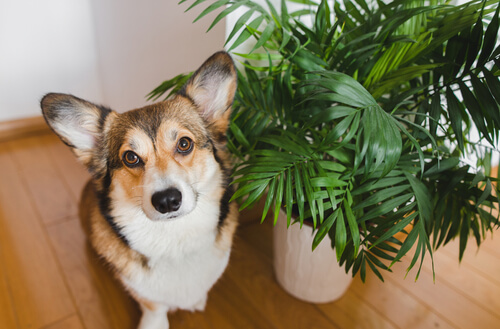
We all know the saying: curiosity poisoned the cat. Ok, we may have changed it a little, but for good reason. Animals are curious creatures, and sometimes they put their nose where it doesn’t belong—in your plants. Unfortunately, some houseplants expose your pets to serious health risks. To keep your furry friends safe, we’re here to guide you through the best pet-friendly plants to add to your home.
Our Favorite Pet-Friendly Plants
Houseplants add character and color to your space, and many even have health benefits. Creating an indoor oasis that’s safe for you and your pet has never been easier. Below you’ll find the best houseplants for pet owners, all available at your local Home & Garden Store.
Don’t hesitate to talk to one of our knowledgeable greenhouse team members. We’ll help you pick out the purr-fect plant and give you the best care tips along the way.
Spider Plants (Chlorophytum comosum)
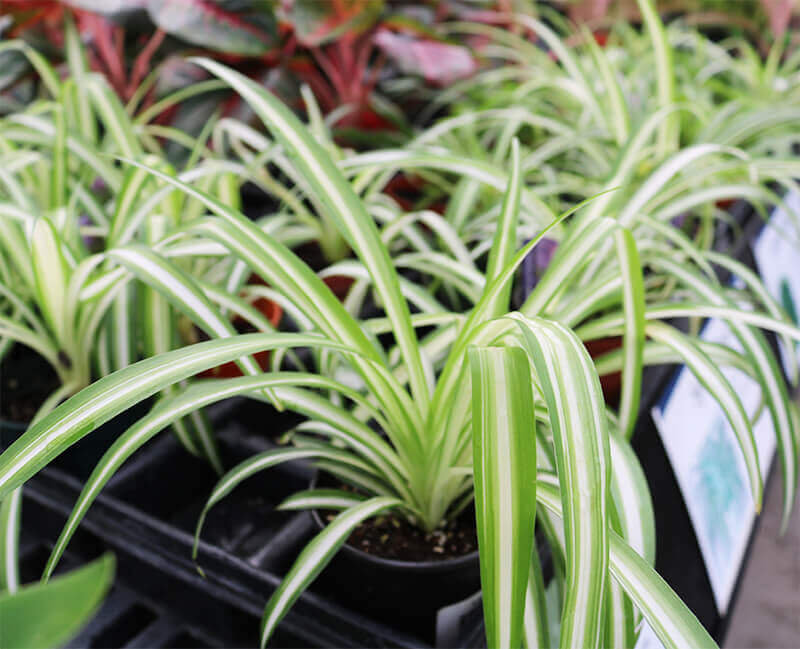
Brighten up your space with a few spider plants! With its ribbon-like leaves, spider plants add a pop of color to your home and look great in a hanging basket or up on a shelf. Plus, they’re easy to grow. They do well in all different types of soil and even purify your air.
Tips for Growing Spider Plants (Chlorophytum comosum)
- Sunlight: bright, indirect light
- Humidity: average home temperature and humidity
- Water: once a week (or whenever the top two inches of soil are dry)
- Soil: well-draining potting mix with a soil base
Polka Dot Plants (Hypoestes phyllostachya)
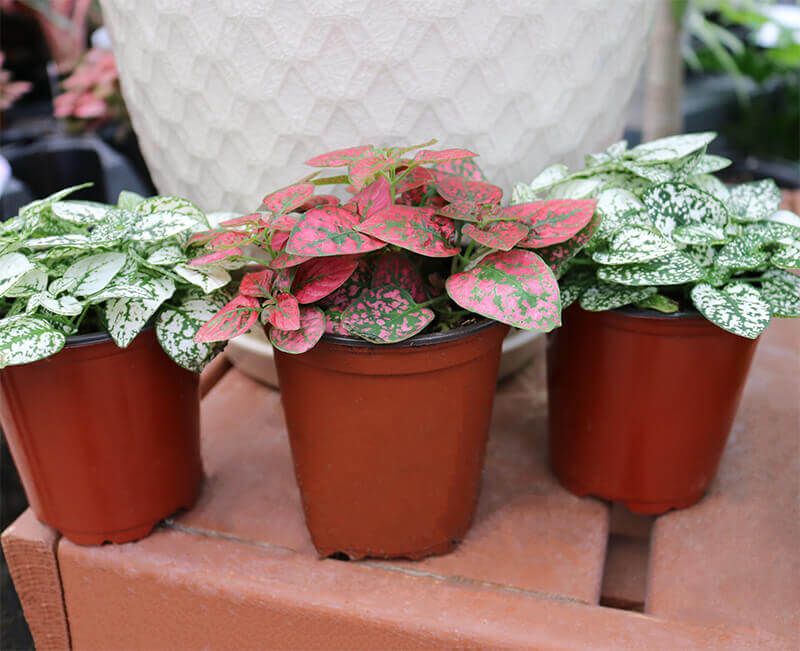
There’s nothing like the dappled leaves that give the polka dot plant its name. Whether you choose the white or pink variety, both are a great pet-friendly plant to add charm to your home or office. They stay relatively small, making them perfect for a windowsill.
Tips for Growing Polka Dot Plants (Hypoestes phyllostachya)
- Sunlight: bright, indirect light
- Humidity: warm, humid conditions
- Water: keep the soil moist and water when the top half inch is dry
- Soil: potting mix enhanced with organic matter
Haworthia (Haworthiopsis attenuata)
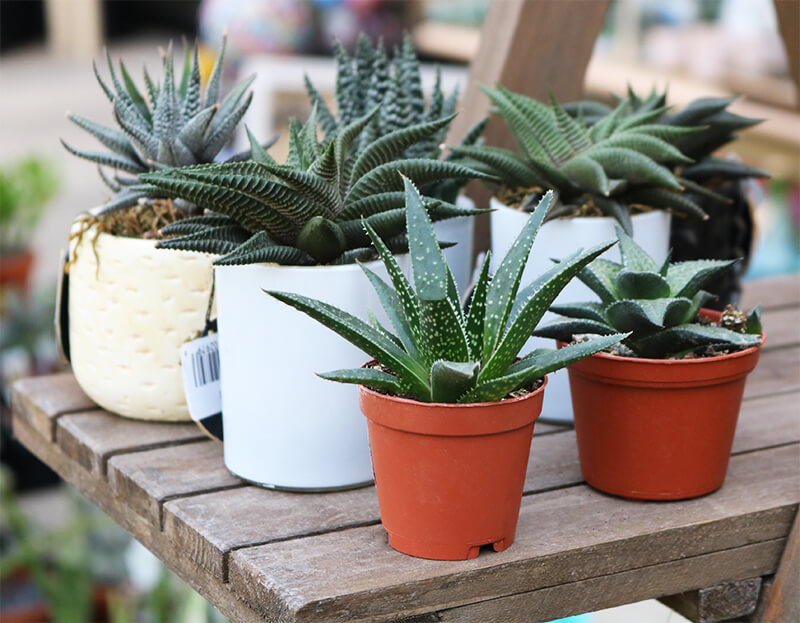
Don’t have much of a green thumb? Succulents are a fantastic place to start, and they are one of the best houseplants for pet owners! They are known for being easy to take care of and hard to kill, and most of them are pet-safe. Hawthoria, also known as the “zebra cactus,” is the perfect companion for your desk, shelf, or windowsill.
Tips for Growing Haworthias (Haworthiopsis attenuata)
- Sunlight: bright light
- Humidity: warm temperatures
- Water: minimal watering (reduce in fall and winter)
- Soil: sandy soil with good drainage
Boston Fern (Nephrolepis exaltata)
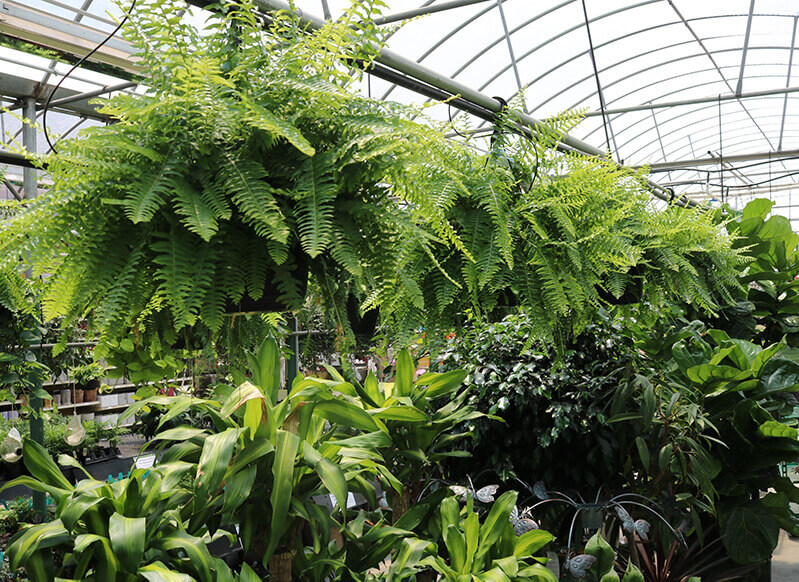
Ferns have a special place in our heart, especially ones that are safe for our children (the furry ones, that is). We love hanging these in a bright bedroom, a humid bathroom, or out on the porch for our neighbors to enjoy. Another perk of Boston ferns is that they make a great air purifier. Always remember to repot it when it outgrows its container.
Tips for Growing Boston Ferns (Nephrolepis exaltata)
- Sunlight: bright, indirect light or partial shade
- Humidity: warm, humid conditions (mist the leaves if you live in a dry climate)
- Water: frequently to keep the soil moist
- Soil: rich, loamy soil that retains water but drains well
Areca Palm (Dypsis lutescens)
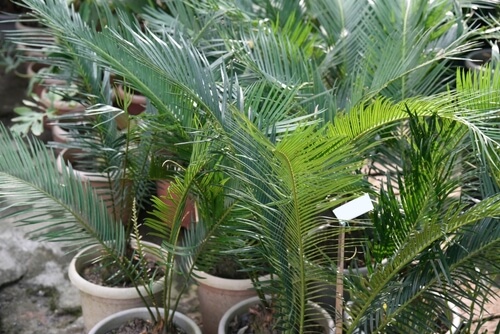
Looking for something a little more substantial? Check out our areca palms! These trees are perfect for filling an empty corner in a living room or bedroom. But be careful—they are easy to overwater, so let the soil dry out each time. Potted palms rarely bloom, but if they do, they’ll produce bright yellow flowers.
Tips for Growing Areca Palms (Dypsis lutescens)
- Sunlight: bright, indirect light
- Humidity: thrives in humidity, so consider misting the leaves
- Water: as needed when the top inch is dry
- Soil: well-draining soil that’s slightly acidic
Orchids

Our guide to pet-friendly plants wouldn’t be complete without a flower! Growing orchids can be tricky, but of the 28,000 different species, they all have one thing in common: they love humidity. We’ve found they thrive in bathrooms or kitchen windows and should be fertilized regularly during the spring and summer.
Tips for Growing Orchids:
- Sunlight: bright, indirect light
- Humidity: 50% humidity or above, ideal temperature varies
- Water: once a week but don’t overwater
- Soil: well-draining soil that retains moisture
Other Pet-Friendly Plants to Explore:
- African Violets
- Air Plants
- Baby Tears
- Basil
- Blue Echeveria
- Calatheas
- Cat Grass
- Christmas Cactus
- Lipstick Plants
- Money Tree
- Musa (Banana Palms)
- Parlor Palms
- Pileas
- Prayer Plants
- Sage
- Thyme
- Venus Fly Traps
- Watermelon Peperomia
Create a home that’s safe for you and your animals! Check out our wide selection of pet-friendly plants online or at your nearest Home & Garden Store.
This blog was originally published on January 31, 2020. It was updated on July 10, 2024.
